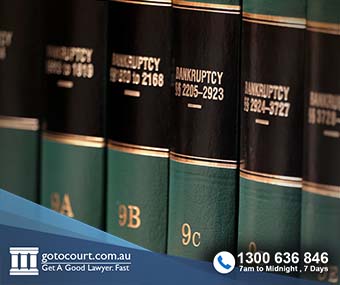Defamation in Tasmania
Defamation in Tasmania
The law of defamation exists to protect a person’s reputation, while still upholding free speech. In 2006, all of the Australian states enacted defamation laws that are largely similar. In Tasmania the civil laws are contained in the Defamation Act 2005 and the criminal laws are outlined in the Criminal Code Act 1924.
Defamation includes both written and oral publications. For a defamation claim to succeed, the material must have been published, it must identify a person/s and it must be defamatory. Publication means that the material was communicated in some way to another person.
It is not a requirement of a defamation claim that the person defamed be referred to by name. It is enough if any potential recipients of the defamatory material would be able to identify them. Material is defamatory if it seriously harms a person’s reputation. This will be assessed with reference to the circumstances of the publication and the views of society as a whole as well as specific groups within the community.
Any individual can be defamed. However, corporations cannot sue for defamation unless they either employ less than 10 people or their members are unpaid.
The ‘serious harm’ test
In 2022, the Defamation Act 2005 was amended and section 10A was inserted. This provision contains the ‘serious harm’ test, which requires a person’s reputation to have been seriously harmed in order for their defamation claim to succeed.
This test was introduced to prevent the law of defamation from being used to address trivial or minor instances of harm to a reputation.
Remedies
There are two remedies for defamation: an injunction to prevent publication and damages after publication.
An injunction will not be given if the party publishing the material says they have a defence to a claim for defamation that it is in the public interest that the material is published.
An award for damages must have a proportionate relationship to the harm. This is a matter for the court to decide.
Apologies, amends and mitigating damages
An apology for publishing defamatory material is not an admission of fault and it does not prevent or stop court action. However, it will mitigate damages.
Amends can be made generally, or in relation to specific statements. An offer to make amends must be made within 28 days of the receipt of a notice setting out the allegations of defamation. An offer must state the statement it relates to and include an offer to publish a correction and to pay any reasonable expenses incurred by the person.
After accepting an offer to make amends, the defamed person can’t start, continue or enforce a claim for defamation. An offer to make amends that is not accepted will mitigate the damages awarded if a defamation claim subsequently succeeds. It can also be used as a defence to a claim if the offer to make amends was sufficient.
Defences
The Defamation Act 2005 provides for a number of defences to defamation claims. These include:
- justification under section 25 of the Defamation Act 2005 – meaning the published statement is substantially true
- contextual truth under section 26 of the Defamation Act 2005 – this defence applies where the published statement made imputations that are substantially true so the aggrieved could not have been harmed
- absolute privilege under section 27 of the Defamation Act 2005– this defence applies to publications made during parliamentary debates, or in court or tribunal judgments
- public document under section 28 of the Defamation Act 2005 – this applies in cases where the content is also contained in a public document, such as a parliamentary debate, court or tribunal judgment, or other governmental publication
- fair report under section 29 of the Defamation Act 2005 – this applies where the publication was made during the course of, or previously contained in any fair report of a proceeding of public concern
- qualified privilege under section 30 of the Defamation Act 2005 – this applies in cases where the publication was obligatory for some legal, social or moral reason. However there are limitations to this.
- honest opinion under section 31 of the Defamation Act 2005 – this defence applies where the publication was a statement of opinion rather than fact
- innocent dissemination under section 32 of the Defamation Act 2005 – this applies where the distributor of the publication did not have control over the content of the publication
- triviality – where the aggrieved is unlikely to sustain serious harm as required under section 10A of the Defamation Act 2005.
Criminal defamation
A person who publishes defamatory material knowing it is false, or not caring if it is false, with the intention to, or not having regard to whether it will, cause serious harm to a person is guilty of a crime. All of the defences available to a civil action in defamation also apply to a criminal charge. A criminal charge does not prevent a civil action being taken for the same statement.
If you require legal advice or representation in any legal matter, please contact Go To Court Lawyers.

Affordable Lawyers
Our Go To Court Lawyers will assist you in all areas of law. We specialise in providing legal advice urgently – at the time when you need it most. If you need a lawyer right now, today, we can help you – no matter where you are in Australia.How It Works




1. You speak directly to a lawyer
When you call the Go To Court Legal Hotline, you will be connected directly to a lawyer, every time.

2. Get your legal situation assessed
We determine the best way forward in your legal matter, free of charge. If you want to go ahead and book a face-to-face appointment, we will connect you with a specialist in your local area.

3. We arrange everything as needed
If you want to go ahead and book a fact-to-face appointment, we will connect you with a specialist in your local area no matter where you are and even at very short notice.












